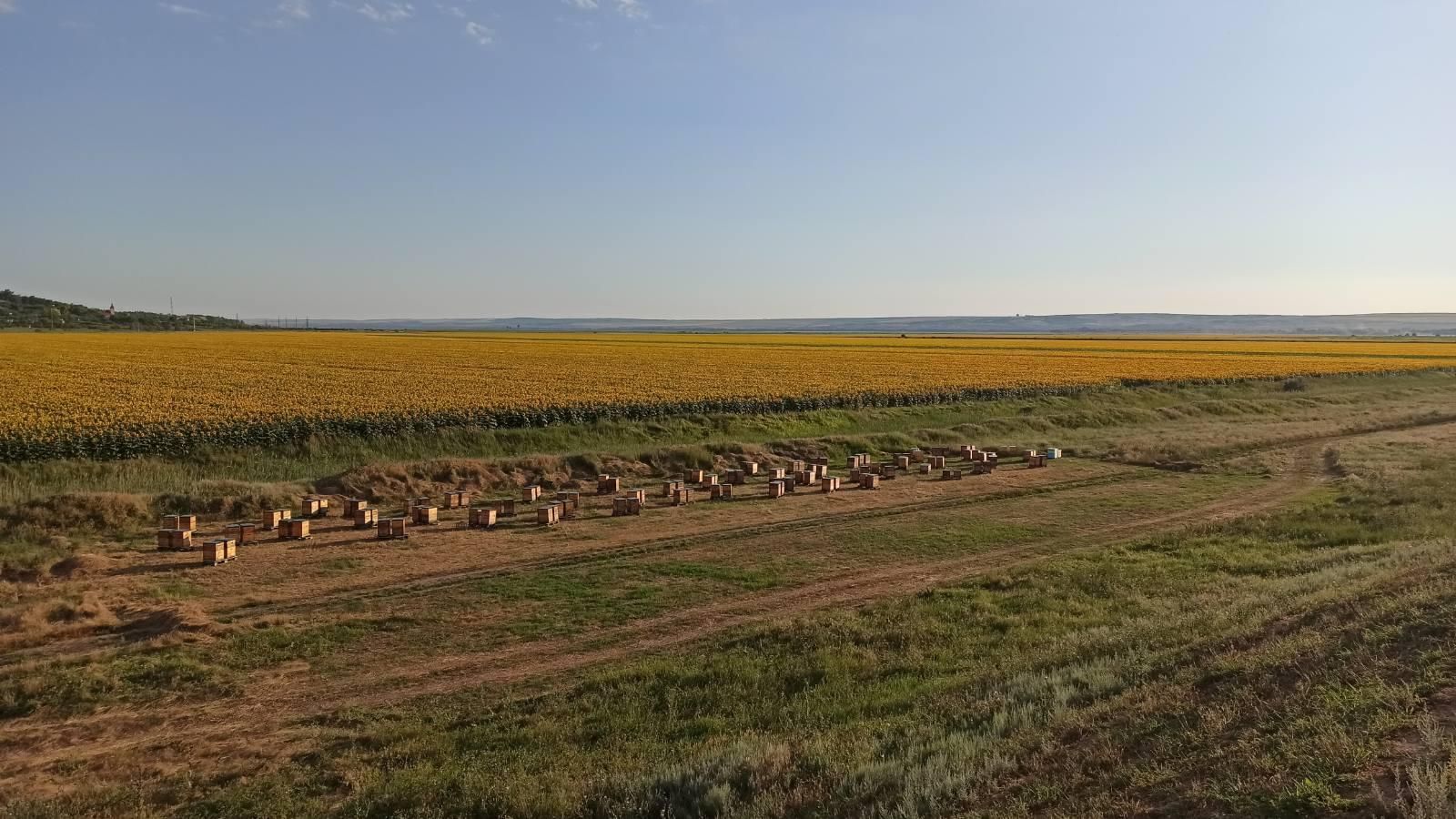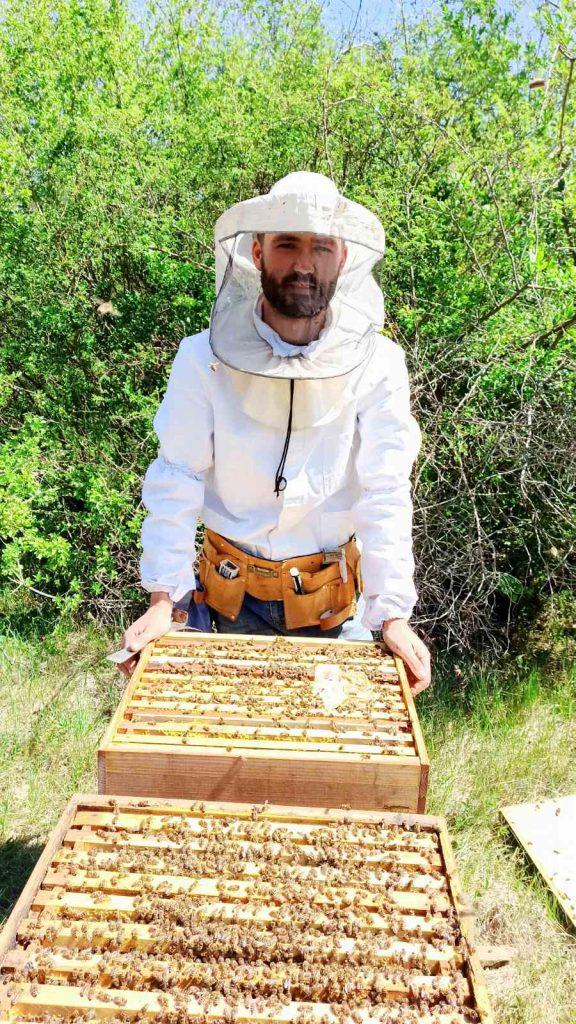The European Union is the main trading partner of Moldovan beekeepers

More than 90% of the honey produced in the country reaches the EU market. The main importing countries are Italy, France, Romania, Poland and Germany. The EU is also one of the most important sources of funding for the sector.
In the last two years, thanks to the Livada Moldovei project, supported by the European Union through the European Investment Bank, beekeeping businesses have benefited from loans worth €1.2 million. This is also the case for Mihai Curjos, a third-generation beekeeper from Larga Noua, Cahul district, who decided to modernize his family business.
Mihai Curjos’ love for beekeeping was passed down to him from his grandfather, who installed a few hives in his backyard in the 1970s. What started as a hobby has become a thriving business that has managed to bring in income for the family. At first, the farm expanded to 100 hives, and over the years the young beekeeper was able to study bee behavior in detail.

“What’s amazing is the bees’ intelligence, the way they act in different situations and their care for future generations. It’s interesting how they defend themselves and react to different human activities,” said Mihai Curjos.
Motivated by good sales in 2019, the beekeeper decided to buy 100 more hives and honey extraction technology. To do this, he took out a loan of 10 thousand euros under the Livada Moldovei credit line. This allowed the beekeeper to benefit from favorable conditions and a competitive interest rate.
“It was not a complicated process. I first went for a consultation and had the procedure explained to me. I completed the paperwork and within a month and a half, I received the money. The most attractive thing was that I was able to purchase the machine at zero VAT rate, I saved 20% of the cost of the machine. I was also able to combine it with other projects, so immediately after buying the machine I applied to the subsidy program and got half of the money back,” stated the young beekeeper.
After buying 100 beehives, Mihai Curjos started to populate them with bee families. At the same time, the beekeeper bought a centrifuge for 42 frames, an automated stripper and a melter that allows a higher percentage of wax to be extracted with minimal losses.
The beekeeper sells honey, pollen and propolis. Most of the honey is exported through processors in Moldova.
Although he faces many difficulties, the beekeeper has high hopes for the future of his business.
“The most difficult thing is that we can’t control the processes in nature. In 2020 we were affected by drought, in 2021- cold and unstable temperatures. The price of honey we sell wholesale is very low. At the same time, there are difficulties in communicating with farmers who often use pesticides and don’t inform us, and the bees suffer. We want to carry on the family tradition and hope for a more stable income here at home. That’s why we don’t go abroad,” said Mihai Curjos.
Through the 120 million EUR Livada Moldovei credit line, Moldovan beekeepers can increase the number of hives, develop processing and packaging units, explore new sales directions.
In 2018, there were about 165,000 bee families in Moldova, pollinating about 350,000 hectares of agricultural land (40% of which was horticultural land). This has allowed an increase in harvest by 20-30%, translated into an annual beekeeping value of over 35 million EUR. Currently, there are over 7,800 registered beekeepers in Moldova. In 2020, about 3,500 tonnes of honey were produced, of which 3,300 tonnes were exported.